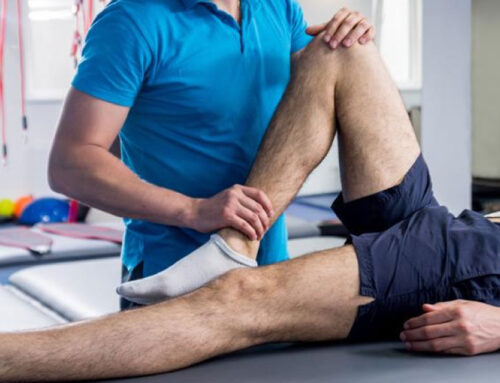Shockwave Therapy in Orthopedics: Historical Insights, Technological Advancements, and Clinical Implications

Shockwave therapy represents a paradigm shift in the treatment of musculoskeletal conditions, offering a non-invasive yet effective alternative to conventional interventions. At Tyrance Orthopedics & Sports Medicine, our commitment to leveraging state-of-the-art therapeutic modalities underscores our dedication to patient-centered care. This article delves into the origins, technological evolution, and multifaceted clinical applications of shockwave therapy, highlighting the “Softwave” technology’s distinct advantages and its emerging role in injury prevention.
Historical Background
The conceptual foundation of shockwave therapy was laid in the 1970s with its application in lithotripsy for non-invasively disintegrating kidney stones using high-energy acoustic waves (Chaussy et al., 1980). This groundbreaking approach demonstrated the therapeutic potential of shockwaves, catalyzing further exploration into their application across various medical disciplines.
Technological Variations
Shockwave therapy encompasses high-energy and low-energy treatments. High-energy shockwaves are predominantly used for dissolving tendon calcifications and certain bone disorders. In contrast, low-energy shockwaves find broader applications, especially in tissue regeneration and pain management, through more frequent and less intense treatments.
Within this spectrum, “Softwave” technology emerges as a notable innovation. It distinguishes itself by dispersing energy over a wider area, thus ensuring a less painful yet efficacious treatment experience for patients.
Clinical Applications and Sports Associations
Shockwave therapy’s efficacy spans a range of conditions, including:
Plantar Fasciitis: Commonly affecting runners, this condition benefits from shockwave therapy’s ability to promote tissue regeneration and alleviate pain.
- Achilles Tendinopathy: Frequently seen in runners and athletes engaged in jumping sports, where shockwave therapy aids in accelerating recovery.
- Lateral Epicondylitis (Tennis Elbow): A prevalent issue among racquet sports players, treatable through the regenerative and pain-relieving properties of shockwave therapy.
- Rotator Cuff Tendinitis: Often diagnosed in athletes who perform repetitive overhead motions, such as swimmers and baseball pitchers, benefitting from enhanced blood circulation and tissue repair induced by shockwave therapy.
- Hip Trochanteric Bursitis: This condition, often arising in cyclists and runners, involves inflammation of the bursa over the greater trochanter. Shockwave therapy can be particularly effective in reducing inflammation, alleviating pain, and facilitating the healing process.
These applications underscore the therapy’s versatility in addressing sports-related injuries, supported by clinical evidence (Wang et al., 2012; Mani-Babu et al., 2015).
Role in Injury Prevention
Beyond treatment, shockwave therapy plays a crucial role in injury prevention. By improving blood circulation and stimulating collagen production, it enhances tissue resilience and functionality, thereby reducing the risk of future injuries (Notarnicola et al., 2012). Athletes can benefit from preemptive shockwave treatments to strengthen vulnerable areas, making it a valuable tool in sports medicine for maintaining peak physical condition.
The “Softwave” Advantage
“Softwave” technology represents a leap forward in shockwave therapy. By mitigating discomfort and broadening the treatment area, it ensures a more patient-friendly approach without compromising effectiveness. This aligns with the evolving needs of patients seeking non-invasive treatments that require less downtime, offering a promising alternative to surgical options.
Essential Takeaways
- Historical Evolution: Shockwave therapy, originally developed for kidney stones, now treats a wide array of musculoskeletal conditions.
- Technological Variations: Includes high-energy for specific bone conditions and low-energy “softwave” technology for broader tissue treatments, emphasizing patient comfort.
- Clinical Applications: Effective for plantar fasciitis, Achilles tendinopathy, lateral epicondylitis, rotator cuff tendinitis, and hip trochanteric bursitis, particularly benefiting athletes in sports like running, racquet sports, and cycling.
- Injury Prevention: Enhances tissue resilience, aiding in the prevention of future injuries through improved blood circulation and collagen production.
- “Softwave” Advantage: Provides a gentler, more comfortable treatment option without sacrificing efficacy, catering to patients seeking non-invasive therapies.
These key encapsulate the value and versatility of shockwave therapy within orthopedic and sports medicine, highlighting its role in both treatment and injury prevention. For further information on incorporating shockwave therapy into your care regimen, call us now (561) 898-0303.
Meet The Physician
Patrick Tyrance, Jr. MD
Patrick Tyrance, Jr. MD is a Harvard trained Orthopedic Surgeon and passionate holistic health advocate. Prior to becoming an Orthopedic Surgeon, he was a former All-Conference and Academic All-American linebacker at the University of Nebraska and drafted by the LA Rams before completing medical school and orthopedic surgery training at Harvard.
He is known as a compassionate physician and recognized for his surgical skill. In addition to his private medical practice, Dr. Tyrance serves as an advisor to a number of healthcare startups and evaluates patented technologies in medicine and healthcare for their commercialization potential.

REQUEST A CONSULTATION
Need help with an existing injury or ailment?
Meet The Physician
Patrick Tyrance, Jr. MD
Patrick Tyrance, Jr. MD is a Harvard trained Orthopedic Surgeon and passionate holistic health advocate. Prior to becoming an Orthopedic Surgeon, he was a former All-Conference and Academic All-American linebacker at the University of Nebraska and drafted by the LA Rams before completing medical school and orthopedic surgery training at Harvard.
He is known as a compassionate physician and recognized for his surgical skill. In addition to his private medical practice, Dr. Tyrance serves as an advisor to a number of healthcare startups and evaluates patented technologies in medicine and healthcare for their commercialization potential.
REQUEST A CONSULTATION
Need help with an existing injury or ailment?







Leave A Comment